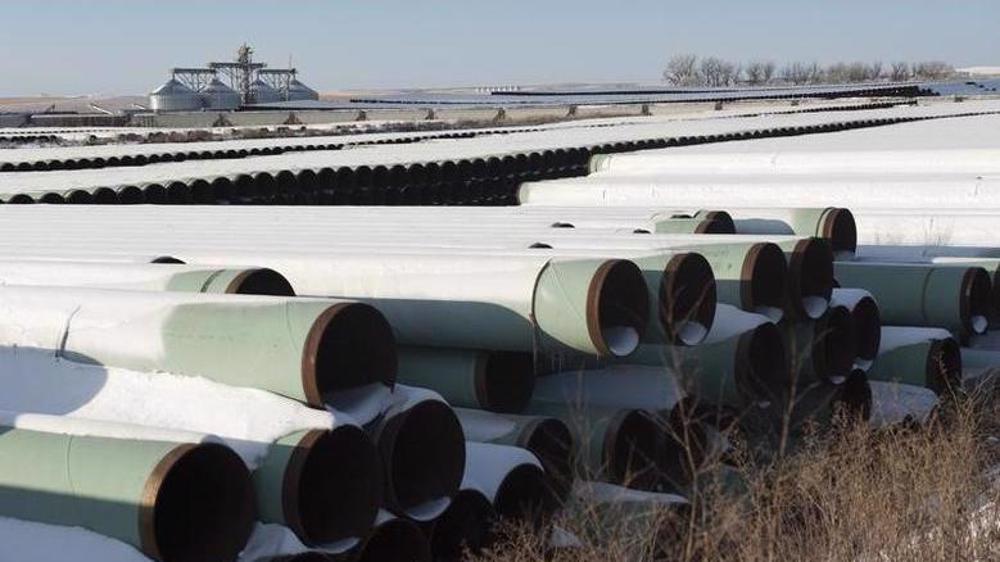Several US states sue Biden administration for revoking permit for Keystone XL pipeline
Several US states have sued the administration of President Joe Biden over his decision to revoke a key permit for the controversial Keystone XL pipeline.
In January, Biden formally revoked the permit needed to finish the years-long project that would have carried oil sands crude from Alberta, Canada, to the American Gulf Coast.
His move marked the second time a Democratic administration has scuttled the $8 billion project in less than a decade.
On Wednesday, a lawsuit was lodged by Texas Attorney General Ken Paxton and Montana Attorney General Austin Knudsen in Texas federal district court, stating that Biden does not have the unilateral authority to change energy policy that the US Congress has set.
"The President lacks the power to enact his 'ambitious plan' to reshape the economy in defiance of Congress's unwillingness to do so."
Attorneys general from Alabama, Arkansas, Georgia, Indiana, Kentucky, Louisiana, Mississippi, Missouri, Nebraska, North Dakota, Ohio, Oklahoma, South Carolina, South Dakota, Utah, and Wyoming all joined the suit.
"The Executive's unilateral decision to revoke the Keystone XL permit is contrary to the constitutional structure to which the states agreed at the time of ratification," the states said in the lawsuit.
“The Executive’s decision also encroaches upon the states’ abilities to steward and control the lands within their borders.”
This comes after last month, the head of the US Senate energy committee, Joe Manchin, called on Biden to stop opposing the Keystone XL pipeline, arguing that the project provides union jobs and is safer than transporting the oil via trucks and trains.
The oil pipeline project, which is owned by Canada’s TC Energy Corp, is part of the Keystone oil pipeline system in Canada and the United States commissioned in 2010. It was rejected by President Barack Obama in 2015, but revived by his successor Donald Trump two years later.
Trump’s decision prompted several environmental groups to sue the US government over concerns about the potential negative impacts of the oil pipeline, mainly the risk of oil spills along the pipeline’s route.
Explainer: How can Iran help South Africa advance its civilian nuclear program?
The importance of creative industry in Iran’s future
Israelis push for Russia to keep Syria bases, want Damascus 'weak, divided': Report
US terminates support for Ukraine energy grid restoration
Israeli soldiers stole ‘mountains’ of cash and gold from Gaza, Lebanon, and Syria: Report
PKK militants declare ceasefire with Turkey to end 40-year bloodshed
VIDEO | largest funeral since 1996 Qana massacre held in Lebanon
Hamas calls on Palestinians to resist Israeli restrictions on al-Aqsa Mosque during Ramadan













 This makes it easy to access the Press TV website
This makes it easy to access the Press TV website